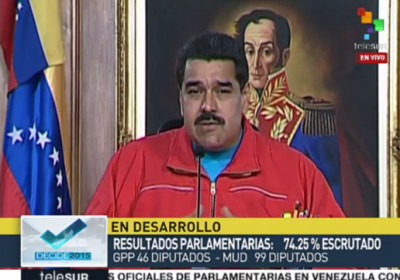
-
 On December 6, Venezuela held its 20th election in 17 years and one of its most difficult yet. With the opposition upping the ante in terms of media attacks and sabotage, 2.5 years of economic difficulties and since the passing of revolutionary leader Hugo Chavez, not to mention a recent right-wing victory in Argentina, the left and right around the world turned anxious eyes to Venezuela.
On December 6, Venezuela held its 20th election in 17 years and one of its most difficult yet. With the opposition upping the ante in terms of media attacks and sabotage, 2.5 years of economic difficulties and since the passing of revolutionary leader Hugo Chavez, not to mention a recent right-wing victory in Argentina, the left and right around the world turned anxious eyes to Venezuela. -
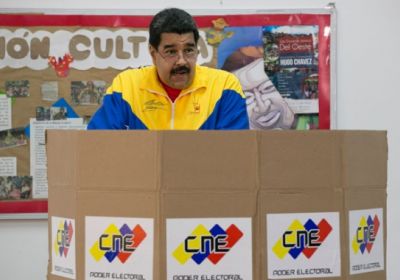 Venezuela's Bolivarian Revolution will face its toughest challenge yet this Sunday, when voters go to the polls to elect a new National Assembly. Amid an economic crisis marked by currency instability and inflation, many Venezuelans are understandably going to be thinking hard before casting what would be seen as a vote in support of President Nicolás Maduro.
Venezuela's Bolivarian Revolution will face its toughest challenge yet this Sunday, when voters go to the polls to elect a new National Assembly. Amid an economic crisis marked by currency instability and inflation, many Venezuelans are understandably going to be thinking hard before casting what would be seen as a vote in support of President Nicolás Maduro. -
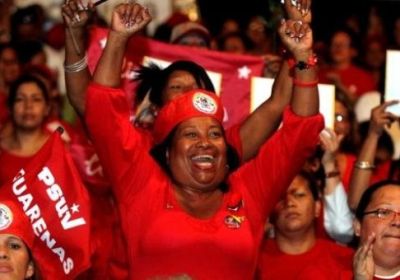
Women are crucial to the Bolivarian process and will play a vital role in Venezuela's national elections next month, legislator and candidate for the governing United Socialist Party of Venezuela (PSUV) Tania Diaz told TeleSUR.
-
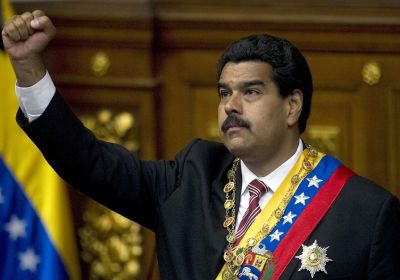 Campaigning began in Venezuela on November 13 ahead of crucial National Assembly elections next month. The vote will see the socialists supporting the Bolivarian Revolution, backed by President Nicolas Maduro, against the right-wing US-funded opposition amid ongoing tensions and economic problems. From November 13 through to December 3, candidates from the ruling and opposition coalitions will be allowed to canvass for votes by public appearances, leaflets and on regional and national media.
Campaigning began in Venezuela on November 13 ahead of crucial National Assembly elections next month. The vote will see the socialists supporting the Bolivarian Revolution, backed by President Nicolas Maduro, against the right-wing US-funded opposition amid ongoing tensions and economic problems. From November 13 through to December 3, candidates from the ruling and opposition coalitions will be allowed to canvass for votes by public appearances, leaflets and on regional and national media. -
 As the initial horror and outrage of the attacks in Paris on November 13 subside, the impacts they are already having on French and European society are becoming clearer. A state of emergency has been declared by the French government and will persist for up to three months. French officials announced on November 17 that France would see an extra 115,000 police officers, gendarmes and soldiers deployed across the country. In this context, rational debate is being restricted and progressive movements are on the defensive. Refugees
As the initial horror and outrage of the attacks in Paris on November 13 subside, the impacts they are already having on French and European society are becoming clearer. A state of emergency has been declared by the French government and will persist for up to three months. French officials announced on November 17 that France would see an extra 115,000 police officers, gendarmes and soldiers deployed across the country. In this context, rational debate is being restricted and progressive movements are on the defensive. Refugees -
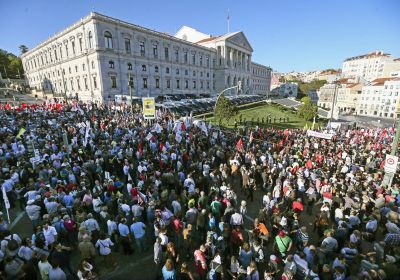
A coalition of the parties of the Portuguese left — the Socialist Party (PS), the Left Bloc, the Communist Party (PCP) and the Greens (PEV) — won a motion of no-confidence in the parliament on November 10.
-

The following statement was released by the Peoples' Democratic Party (HDP) on November 12.
-
 Aung San Suu Kyi's National League for Democracy (NLD) has won a crushing and historic victory in the November 8 election in Burma (also known as Myanmar). Results were not final at the time of publication, but the NLD was on target to win more than 270 of the 330 elected seats (82%) in the People's Assembly, and more than 150 of the 168 elected seats (90%) in the House of Nationalities.
Aung San Suu Kyi's National League for Democracy (NLD) has won a crushing and historic victory in the November 8 election in Burma (also known as Myanmar). Results were not final at the time of publication, but the NLD was on target to win more than 270 of the 330 elected seats (82%) in the People's Assembly, and more than 150 of the 168 elected seats (90%) in the House of Nationalities. -
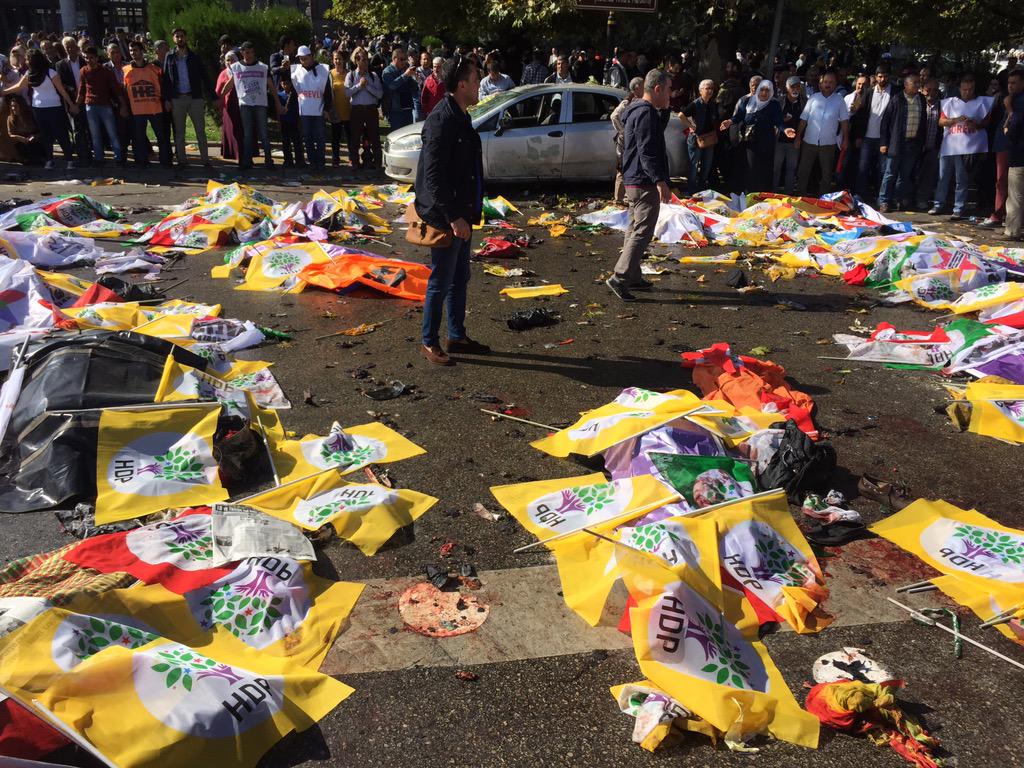 Erdoğan’s electioneering: aftermath of October 10 bombing in Ankara.
In Turkey’s November 1 election, Recep Tayyip Erdoğan’s Justice and Development Party (AKP) increased its votes from 41% to 49% in the five months (143 days) from the election in June. The AKP won a majority of seats — 317 out of 550.
The governing party gained 5 million extra votes. It adopted very risky policies to get this result, but was determined to win the elections — no matter how many lives were lost.
Erdoğan’s electioneering: aftermath of October 10 bombing in Ankara.
In Turkey’s November 1 election, Recep Tayyip Erdoğan’s Justice and Development Party (AKP) increased its votes from 41% to 49% in the five months (143 days) from the election in June. The AKP won a majority of seats — 317 out of 550.
The governing party gained 5 million extra votes. It adopted very risky policies to get this result, but was determined to win the elections — no matter how many lives were lost.
-
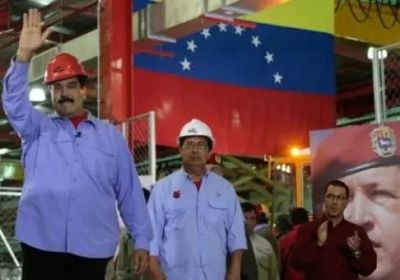
Venezuelan President Nicolas Maduro unveiled a series of economic measures on October 20 after the release of a new poll predicting a victory for the ruling United Socialist Party of Venezuela (PSUV) in December's parliamentary elections.
-
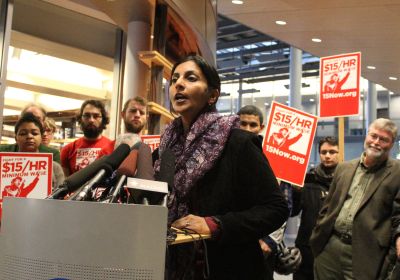 Seattle voted for working-class politics by re-electing socialist incumbent Kshama Sawant to City Council with a five point lead over her challenger. As a result, Seattle residents can expect to see more campaigns in City Council and in the streets to fight inequality and build social justice. “We have accomplished something historic,” Sawant said to supporters on Capitol Hill on the night of November 3 as election results came in. “We have had an open socialist re-elected to City Council.”
Seattle voted for working-class politics by re-electing socialist incumbent Kshama Sawant to City Council with a five point lead over her challenger. As a result, Seattle residents can expect to see more campaigns in City Council and in the streets to fight inequality and build social justice. “We have accomplished something historic,” Sawant said to supporters on Capitol Hill on the night of November 3 as election results came in. “We have had an open socialist re-elected to City Council.” -
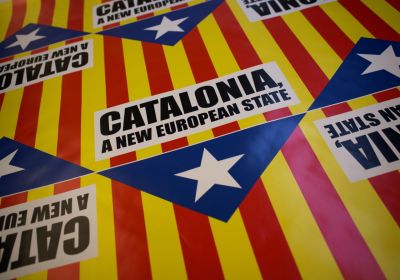 The ongoing war without guns between the Spanish state and Catalonia entered a critical new phase on October 27. On that day, the newly elected pro-independence majority in the Catalan parliament published a draft bill that “solemnly declared the start of the process of creating an independent Catalan state in the form of a republic”.
The ongoing war without guns between the Spanish state and Catalonia entered a critical new phase on October 27. On that day, the newly elected pro-independence majority in the Catalan parliament published a draft bill that “solemnly declared the start of the process of creating an independent Catalan state in the form of a republic”.